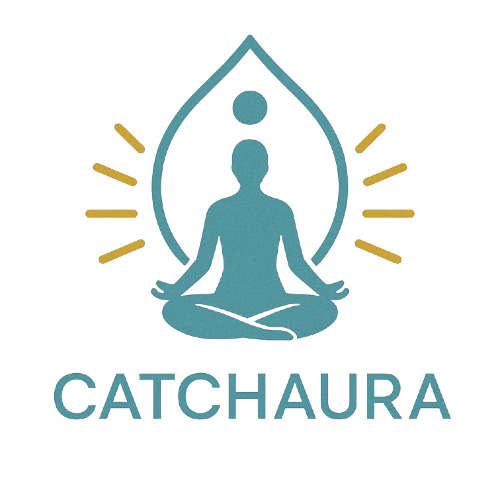The 30-Second Energy Trick: Why Grounding Boosts Vitality
Estimated reading time: 4 minutes
Key Takeaways
- Grounding (or earthing) involves direct contact with the Earth’s surface to absorb natural electrons, boosting energy and reducing inflammation.
- Just 30 seconds of grounding can stabilize cortisol levels, enhance circulation, and improve sleep quality.
- Practices like barefoot breaks, grounding mats, and mindful walking make grounding accessible anywhere.
- Grounding offers sustained energy without crashes, unlike caffeine or energy drinks.
- Consistency deepens benefits, with research supporting its role in integrative health.
Table of Contents
- What Is Grounding and How Does It Boost Energy?
- The Science Behind the 30-Second Energy Trick
- How to Practice Grounding for Instant Vitality
- Grounding for Long-Term Wellness
- Pros and Cons of Grounding
- Grounding vs. Alternatives
- FAQ
What Is Grounding and How Does It Boost Energy?
Grounding, also known as earthing, involves direct physical contact with the Earth’s surface—walking barefoot on grass, sand, or soil—to absorb its natural electrons. Research suggests this connection helps neutralize free radicals, reduce inflammation, and balance the body’s electrical charge, leading to improved energy levels and overall wellbeing.
A study published in Explore (Integrative and lifestyle medicine strategies should include grounding) highlights grounding as a key component of integrative health, with participants reporting reduced fatigue and enhanced mental clarity after just minutes of practice.
The Science Behind the 30-Second Energy Trick
You don’t need hours to feel the benefits. Even 30 seconds of grounding can:
- Stabilize cortisol levels, reducing stress.
- Enhance circulation, delivering oxygen more efficiently.
- Improve sleep quality by regulating circadian rhythms.
For those skeptical about the ritual’s simplicity, Jennifer Chase Finch’s article (Grounding: Has It Become A Misunderstood Ritual?) reimagines grounding with modern, accessible techniques—proving it’s more than just a trend.
How to Practice Grounding for Instant Vitality
1. Barefoot Breaks
Kick off your shoes and stand on natural surfaces like grass or dirt for 30 seconds. Focus on deep breathing to amplify the effect.
2. Grounding Mats
Can’t get outside? Grounding mats mimic the Earth’s charge and are perfect for urban dwellers. Pair them with meditation for a double energy boost.
3. Mindful Walking
Turn a stroll in the park into a grounding session. Yasmin K. Walker’s 30 Days of Grounding (Earth, Gravel, and Bare Feet Bliss) documents how daily barefoot walks transformed her energy and mood.
4. Energy Practices
Combine grounding with energy work like Qi Gong or Reiki. The Energy Psychology blog (Grounding’s Vital Role for Wellbeing) explains how this synergy enhances vitality.
Grounding for Long-Term Wellness
While the 30-second trick offers immediate perks, consistency deepens the benefits. Try these tips from Rising Strong (Tips for Vitality & Serenity):
- Morning ritual: Start your day with 5 minutes of grounding.
- Hydrate: Drink water post-grounding to aid electron absorption.
- Track progress: Journal energy levels to see improvements.
Pros and Cons of Grounding
Pros:
- ✅ Free and accessible (just step outside!).
- ✅ Supports immune function and reduces inflammation.
- ✅ Works synergistically with other holistic practices.
Cons:
- ❌ Weather-dependent (rain or snow can limit outdoor access).
- ❌ Urban areas may lack natural surfaces.
- ❌ Requires consistency for lasting effects.
Grounding vs. Alternatives
Compared to caffeine or energy drinks, grounding offers sustained energy without crashes. Unlike expensive biohacking tools, it’s cost-effective and backed by growing research.
FAQ
How long does it take to feel the effects of grounding?
Some people report feeling calmer and more energized in as little as 30 seconds, but benefits like improved sleep and reduced inflammation may take weeks of consistent practice.
Can I ground indoors?
Yes! Grounding mats simulate the Earth’s charge and are ideal for indoor use.
Is grounding scientifically validated?
Research is growing, with studies like the one in Explore (linked here) showing measurable benefits for inflammation and stress reduction.
What’s the best time of day to ground?
Morning grounding can set a calm tone for the day, while evening sessions may improve sleep quality.
Can grounding replace other energy-boosting habits?
It complements practices like hydration and exercise but shouldn’t replace medical advice for chronic fatigue.


Pingback: Conscious Parenting Tips for Deeper Family Bonds - Catchaura
Pingback: Spirit Airlines Journey to Inner Peace and Expansion - Catchaura
Pingback: Best Practices for Aura et Yoga for Healing and Balance - Catchaura
Pingback: 🌟 Manifest Anything in 21 Days with Ask and It Is Give...